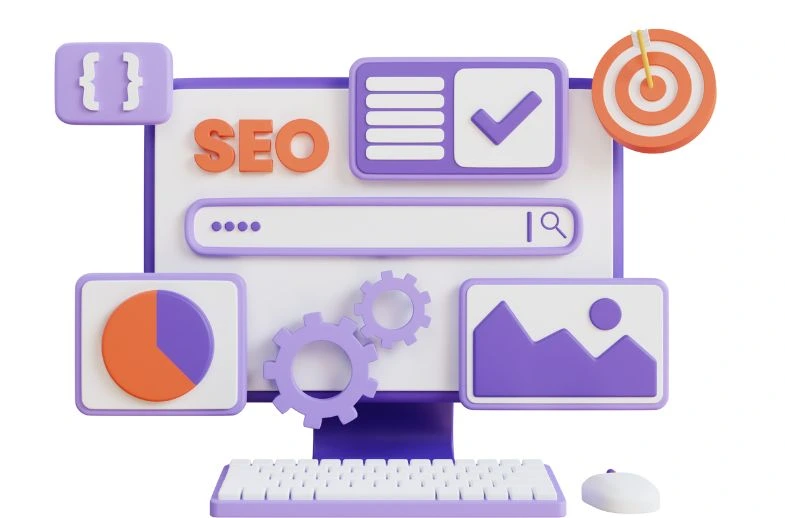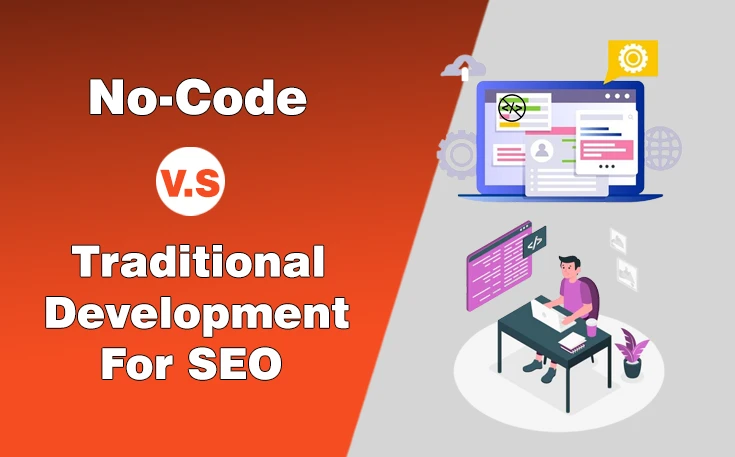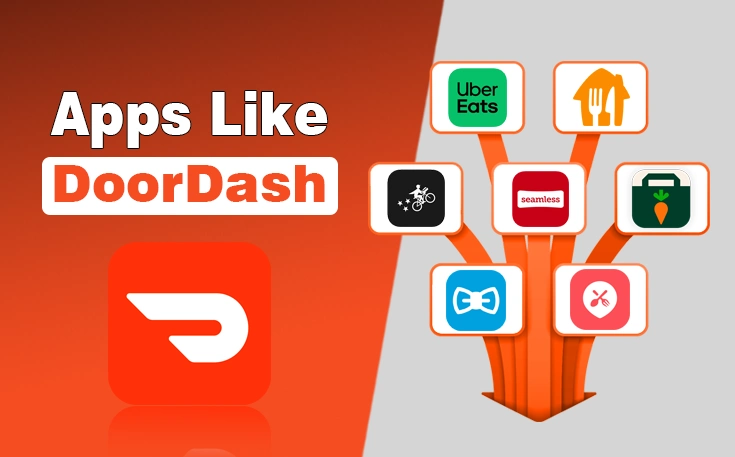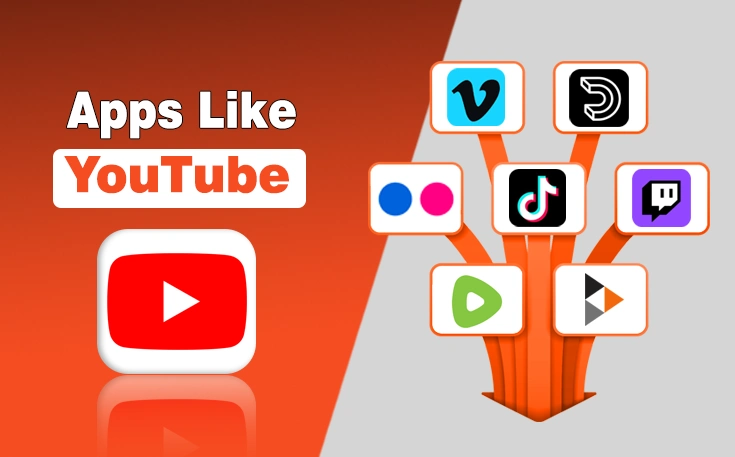Whether you’re planning to launch a blog, online store, or a company website, the process should start with careful planning and, of course, site development. Though not many know this, the approach you take to site development can greatly affect not only its look and technical performance but also its visibility on the Internet.
How? To answer this question, we need to delve into website optimization.
What Is SEO?
SEO or search engine optimization is the process of optimizing your website and its content to drive organic (unpaid) traffic. It implies understanding and meeting search engine requirements for high-quality and valuable websites to earn high positions in search engine result pages (SERPs) and, thus, getting more visible to your target audience.

Why Do You Need to Think About SEO Performance Even Before Developing Your Site?
The SEO impact on business is huge. When handled right, website optimization can offer you better online visibility, enhanced brand awareness, better user experience, trust and credibility, plenty of organic traffic, and a significant competitive advantage.
There are many ways to improve your rankings when your site is already up and running. Namely, you can leverage specialized tools like aioverviewtracker.com to assess your current SEO performance and find ways to boost it through keyword research, competitor analysis, quality content creation, and other SEO best practices.
However, there is one thing that many beginners overlook – search engine optimization begins far before your site is launched. It begins with the proper website development and SEO coding that help ensure optimal performance and let search engines index your sites correctly.
No-Code Platforms and Traditional Development – What Are Those?
Now that you know that the development of your site can predetermine its SEO, you might want to pick the right building method. When deciding on the right website development method, it’s crucial to understand the options and their key distinctive features. So, let’s start with a brief overview.
The term “No-code platform” speaks for itself – this is a type of platform, app, or software that allows you to build full-fledged sites and apps without leveraging a line of code. A well-known example of a no code website builder is WordPress.
Traditional web development, on the contrary, is centered around code. It implies using one of the existing programming languages, such as Python, JavaScript, and others, to build a website. Traditional development also consists of many advanced frameworks and technologies. It requires code to implement every website feature, including a user interface, responsive design, etc.
SEO Web Development – No-Code vs. Traditional Development
In order to ensure that your site has an effective SEO code, you need to consider multiple optimization elements that affect your rankings. Below, I will evaluate the core SEO capabilities of No-Code vs. Traditional Development approaches.
1. Mobile Optimization and Responsive Design
Responsive web design aims to render pages appropriately on different screen sizes, hence providing a better experience for mobile users. Thanks to Google’s mobile-first indexing, such responsiveness is a must to have your website rank high. So, what can no-code and traditional sites offer you regarding mobile-friendliness?
Just a decade ago, creating responsive designs required sophisticated tech skills and an understanding of how to implement CSS float for layout and media files to make them look good on all screens. Today, CSS layout methods are inherently responsive, allowing for ensuring responsiveness with less effort.
No-code builders also allow mobile-friendliness. Many of them feature built-in responsive design features that don’t require code to deploy and offer a lot of flexibility in modifying your design.

2. Technical SEO Considerations
Technical performance has been among the main reasons for opting for SEO HTML code instead of no-code development for a while. It includes things like user experience, site structure, navigation, and loading speed. It is possible to achieve optimal indicators on these and many other factors with traditional programming, though it takes time and skill.
These days, a nocode website can be technically no worse than a site built with the help of SEO coding. Building tools like WordPress and Wix feature plenty of great built-in plugins to make your pages perform great.
3. Scalability and SEO as the Website Grows
While ensuring impeccable search engine optimization can be hard, maintaining your SEO can be even harder, especially when your site grows and you must scale your efforts.
In the case of traditional development, any improvement and change of your site will likely require further changes in its code. It will take a good professional to ensure that your platform’s technical side matches the growing load.
In terms of scalability, the best thing about site builders is that they typically don’t limit you in size. For example, the Wix editor doesn’t pose a specific size on your pages and automatically adjusts their length to accommodate as much content as you add. Features like this allow you to make your scaling worry-free and effort-free.
4. Ease of Use and Cost
Writing a solid SEO HTML code that considers a website’s responsiveness, technical indicators, and other functionality isn’t easy. It requires in-depth programming knowledge and skills. Needless to say, finding a suitable specialist who can handle this task for you can be quite expensive.
As for site builders, they have a tangible benefit in terms of simplicity and cost. Using them is so simple that even a person with no programming experience can handle it and the cost of both building and maintaining your platform is typically much lower.
At the same time, a nocode website can give you plenty of customization opportunities. And it can equip you with additional plugins that can help you handle all kinds of optimization tasks, including an on page SEO audit, internal linking, on page SEO tags placement, redirect management, content creation, and many others.
These plugins can help cut down on your SEO costs. And they can make optimization simpler, too! With the right plugins, you don’t even have to know in-depth “What is on page optimization” or “How to improve technical SEO,” you only need to follow the tips and suggestions you receive from your plugins.
5. Security
Website security is another concern when choosing No-Code vs. Traditional Development. Ensuring security through programming isn’t easy. It requires understanding all modern threats, such as SQL injection, cross-site scripting (XSS), distributed denial of service (DDoS), zero-day exploits, and many others. It also requires being well-versed in the top web development security practices.
Despite a common misconception, sites built with platforms like Wix or WP aren’t insecure. On the contrary, they can be incredibly safe by default and provide you with free SSL certificates. The trick is that the safety of your site can only go as far as the safety of the platform you used to build it. That’s why selecting the right platform is the key to success.
Final Verdict: Which is Better for SEO?
Although website builders have been around for a while, there have long been different concerns about their effectiveness, especially for developing sites capable of ranking well in search engines.
As you now know, proper SEO performance is based on numerous aspects. Yet, long gone are the days when no-code pages couldn’t consider all these aspects.
Today, no-code development doesn’t necessarily mean poor SEO. On the contrary, builders can offer simplicity of use, cost-efficiency, customization, and many SEO-focused tools to make your site rank high. So, eventually, choosing the right development method only comes down to your specific needs and goals.





